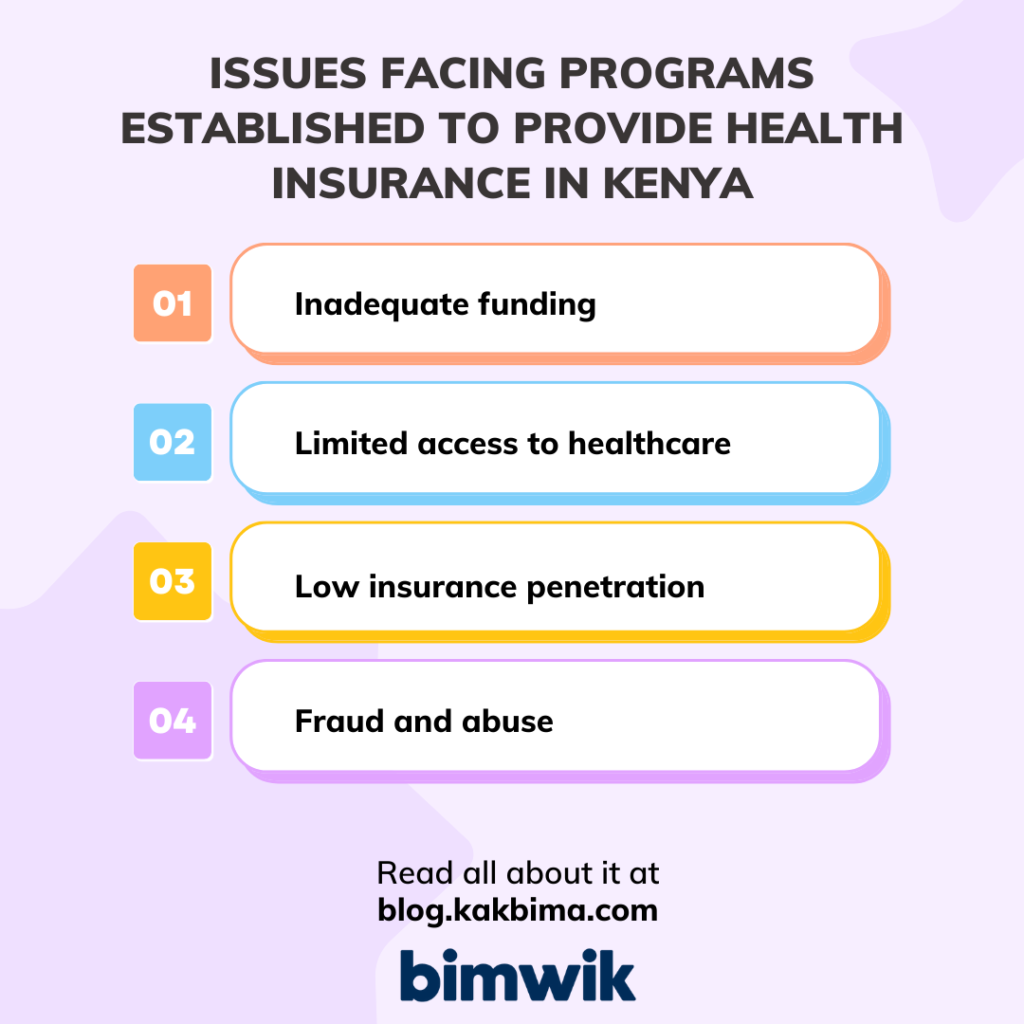Health insurance is a critical component of healthcare, and it provides financial protection to individuals against the cost of medical care. The United States has several programs established to provide health insurance to different groups of people, such as Medicare, Medicaid, and the Affordable Care Act (ACA). While these programs aim to provide healthcare coverage to those who need it, there are several issues facing these programs. In this article, we will explore some of the issues facing programs established to provide health insurance, with real-life examples.
Issue 1: Rising healthcare costs
One of the most significant issues facing health insurance programs is rising healthcare costs. Medical care costs in the United States are among the highest in the world, and they continue to rise every year. Rising healthcare costs make it difficult for insurance programs to provide affordable coverage to individuals.
For example, the cost of prescription drugs has been rising steadily over the years, making it challenging for people to afford essential medications. Many people are forced to choose between buying medication or paying for other expenses, such as rent and food. This has led to the development of the Medicare Part D program, which provides prescription drug coverage to seniors.
Issue 2: Access to healthcare
Another critical issue facing health insurance programs is access to healthcare. While programs like Medicaid and the ACA aim to provide healthcare coverage to low-income individuals, many people still face barriers to accessing medical care. This is especially true for individuals living in rural areas or those with limited transportation options.
For example, in rural areas, there is often a shortage of healthcare providers, making it difficult for people to access medical care. Additionally, many low-income individuals may not have access to reliable transportation, making it difficult for them to travel to medical appointments. To address this issue, some programs have implemented telemedicine services, allowing patients to receive medical care remotely.
Issue 3: Complexity of insurance plans
Health insurance plans can be complex, making it difficult for individuals to understand what their coverage includes and what it does not. This complexity can lead to confusion and frustration for patients, which can result in delayed or inadequate medical care.
For example, some insurance plans may have limited coverage for mental health services or prescription drugs, making it difficult for individuals to access the care they need. To address this issue, some states have implemented laws that require insurance companies to provide more transparent information about their plans.
Issue 4: Fraud and abuse
Another issue facing health insurance programs is fraud and abuse. Fraudulent activities such as billing for services not provided or charging for unnecessary medical procedures can drive up healthcare costs and reduce the quality of care.
For example, in 2019, the Department of Justice announced charges against more than 300 people for their involvement in healthcare fraud schemes, resulting in losses of over $2 billion. To combat fraud and abuse, programs like Medicare and Medicaid have implemented measures such as pre-authorization for medical procedures and increased monitoring of billing practices.
Issue 5: Political uncertainty
Finally, political uncertainty is a significant issue facing health insurance programs. Changes in political leadership or policies can impact healthcare coverage, leaving individuals uncertain about their insurance status.
For example, in 2017, the Trump administration attempted to repeal the ACA, which would have resulted in millions of people losing their healthcare coverage. This uncertainty can lead to anxiety and fear for individuals who rely on these programs for their medical care.
Health insurance programs play a critical role in providing access to medical care to millions of people in the United States. However, there are several issues facing these programs, including rising healthcare costs, limited access to medical care, complex insurance plans, fraud and abuse, and political uncertainty. Addressing these issues will require a collaborative effort between healthcare providers, insurance companies, policymakers, and individuals to ensure that everyone has access to affordable insurance.











